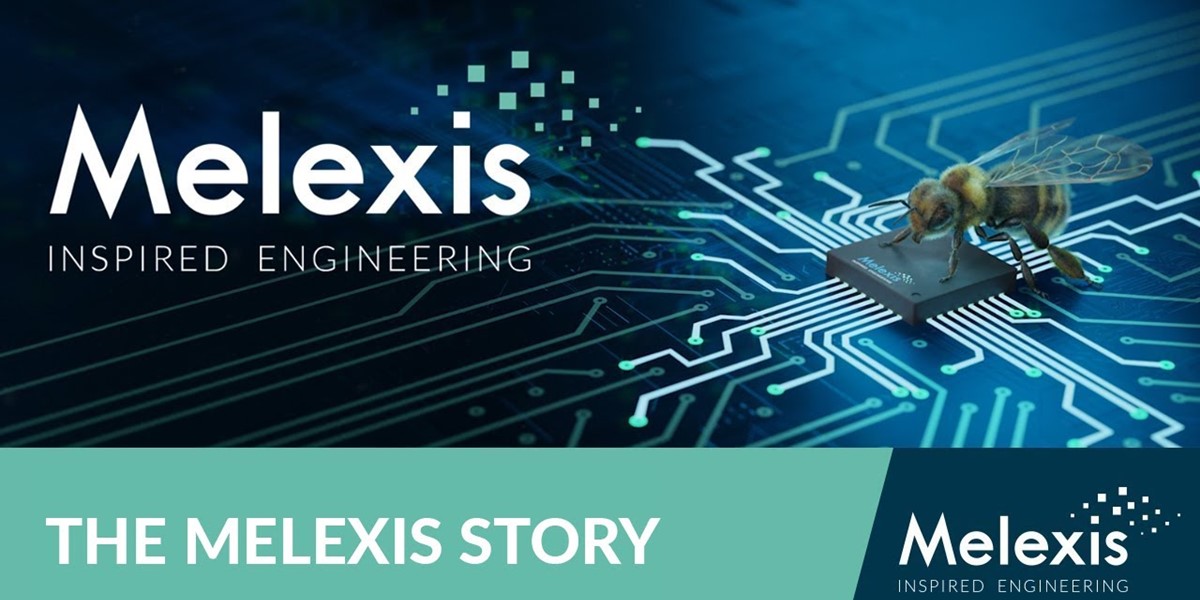Danny Van Quaethem has a master’s degree in Germanic Philology (English-German) at RU Gent. Then he obtained the diploma of financial analyst (ABAF). He wrote for ten years for investment magazines (7 years for Afinas Report and 3 years for De Belegger). In 1997 he started at Société Générale Private Banking Belgium (formerly Bank De Maertelaere). He worked exclusively as a financial analyst covering equity markets, focusing on a number of sectors (pharmaceuticals, chemicals, consumer goods). At Econopolis, Danny is Senior Equity Analyst.
Melexis: from the junkyard to fancy car essential

The art of adaptation: tech titans and Melexis's exceptional journey
Paradigm shifts can occur within two decades, as evidenced by the leadership transition from Nokia to Apple. Sometimes, however, things remain the same, at least at first sight. Meta –
also known by “older” people as Facebook –, Alphabet – formerly known as Google – and Microsoft – anything but micro and soft – have all remained the “same”. Under the hood, things have changed dramatically. All these companies adapted extremely well to technological and societal changes and as a result are thriving like never before.
Melexis does not play in that major league. It does, however, share a fascinating history of adapting perfectly to changes in its industry. It is currently playing a crucial role in the transformation towards electrification. The history of Melexis seems to be dull and exciting at the same time. It appears dull because little has changed since the company was founded three decades ago. It has the same ownership, fosters the same company culture and maintains a relentless drive for innovation. However, Melexis has excelled in autonomous growth, consistently rewarding long-term investors over the past decades. It stands as one of the few serious compounders in the Belgian stock market.
Melexis' ownership transformation: a step towards future-proofing
In terms of ownership, there has been a technical change. Xtrion, the controlling shareholder with over 50% ownership, recently sold all its shares in Melexis to Elex and Sensinnovat, its indirect shareholders. Xtrion transferred 10,100,000 shares to Elex and 10,100,001 shares to Sensinnovat. Elex serves as the investment vehicle and holding company of the Duchâtelet family, while Sensinnovat fulfills a similar role for the De Winter-Chombar family. This transaction is part of a strategic rearrangement of investment structures, aimed at enabling both families to pursue individual and independent investment strategies with an eye towards future generations. As a consequence of this restructuring, what was once joint control over the company has now become an absence of control and a lack of concerted action. Nevertheless, both families have affirmed their alignment on Melexis' current strategy and priorities, with a continued commitment to the company. They have also stated that they have no immediate plans to sell or diminish their shareholdings. Roland Duchâtelet and Françoise Chombar have reiterated their intention to remain as directors of Melexis. The interests of the 'next generation' have also been considered in these decisions.
Innovation and integrity: Contrasting paths of L&H and Melexis
The origins of Melexis trace back to 1988 with the founding of Bulcke Hybrid Technology in Ypres, situated in the same industrial zone as Lernout Speechproducts. This company later became infamous as 'Lernout & Hauspie' (L&H), a pioneering Flemish speech technology firm. Despite being far ahead of its time, L&H collapsed due to fraudulent mismanagement. The company debuted on Nasdaq in 1995, and in 1998, Microsoft acquired an 8% stake. However, the company's downfall began when the Wall Street Journal uncovered the fraud in 2000, leading to its implosion and the sale of its technology to Scansoft. Scansoft subsequently merged with Nuance, which Microsoft then acquired in March 2022 for $19.7 billion. This acquisition, Microsoft's third-largest following Activision and LinkedIn, was described in their press release as 'a strategic, highly complementary acquisition accelerating industry-specific cloud strategy to transform the future of work and care, ushering in a new era of outcomes-based AI.
One can only imagine what L&H might have become had the company been led by honest, competent management under a strict governance framework with a clear long-term vision. It would certainly have struggled at times, but with the backing of Microsoft it could have played a key role in the use of natural language processing algorithms (as Nuance supported Apple's Siri voice assistant in 2013). Alas, Flanders Language Valley in Ypres remained an illusionary dream.
Meanwhile, in that very same valley, only a few hundred meters from L&H's impressive headquarters, a modest company named Melexis was diligently developing and testing its sensors. Established in 1988 as Bulcke Hybrid Technology, it was acquired in 1994 by Elex. At the time of purchase, Bulcke Hybrid was unprofitable, but the new management swiftly engineered a turnaround. Melexis evolved into a highly cash-generative entity, a status it maintains to this day.
From boardroom to market boom: the evolution of Melexis and the Melexian way
From the outset, the three entrepreneurs Roland Duchâtelet, Rudi Dewinter, and Françoise Chombar were united by a clear vision and strong values. Each has served as the CEO of Melexis: first Roland Duchâtelet, followed by Rudi Dewinter. Dewinter later shifted his focus to Xfab, a specialty foundry and primary supplier to Melexis. Françoise Chombar was appointed COO in 1994, became co-CEO alongside her husband, Rudi Dewinter, in 2004, and served as the sole CEO from 2011 until 2021, when she passed the baton to Marc Biron. Marc, a civil engineer from Liège who joined the company in 1997, ensures the continuity of its vision and values.
Françoise Chombar now presides as the Chairman of the Board, which is exemplary in its governance. Comprising six members, the Board balances specialized expertise with gender diversity, maintaining a 50/50 gender ratio. This leadership model is a testament to the fact that everything starts at the top. The Board’s ethos permeates every facet of Melexis's corporate culture, influencing the 'Melexian' way of life within the company.
Steadfast and strategic: Melexis's 26-year journey of consistency and competitiveness
In October 1997, Melexis launched its IPO on Easdaq, the European equivalent of Nasdaq. Initially, the owners were hesitant about going public. However, at that time, many companies in Brussels were successfully entering the market, which eventually influenced Melexis's decision. This move proved beneficial, not only in terms of investor interest but also for enhancing market presence, attracting engineers, and convincing customers of its credibility.
During the IPO, Roland Duchâtelet cautiously speculated whether Melexis might outgrow Barco, which was then experiencing its golden era. Today, this speculation seems prescient as Melexis boasts a market capitalization of €3.4 billion, surpassing Barco's €1.5 billion. Additionally, over the past 22 years, Melexis has distributed nearly €900 million in dividends.
Reflecting on these past 26 years, one might find it interesting how the concerns and comments from then are still relevant today. Are the family owners planning to sell the company? No, in the last 26 years the owners have often publicly stated that they consider the long-term interests of all stakeholders best served by keeping control and not selling out. Will the company be able to compete against much larger competitors? Yes, because it plays in quite specific niche markets, maintains a high level of innovation, and provides excellent customer service, without resorting to the clichés of 'customer intimacy' or 'customer excellence'. This approach has enabled it to outlast some of its original competitors like Motorola and Temic.
At the time of its IPO, there were concerns about overcapacity in the cyclical car industry, highlighted by Renault closing a factory in Belgium. Similar concerns persist today, with the rise of Chinese EVs and Tesla's disruption of the German car industry. In 1997, Roland Duchâtelet said he was not worried about that because Melexis would profit from growth in emerging markets. Same answer today, but in very different circumstances. Melexis is not worried about the changing circumstances in the car industry. It adapts, innovates and serves the leading innovators as its customers. Tesla, BYD and NIO all have Melexis inside.
By the way, because of the cyclical nature of the industry, investors were advised to “invest for the long term”. Written in a business newspaper in 1997, that was excellent free advice. In 1999, investors complained about the bad liquidity on Easdaq. In response, the company transitioned to Euronext, yet concerns about liquidity persist even today. Despite its inclusion in the Bel20 index with a weight of 1.8%, Melexis's stock experiences an average daily trading volume of about 34,000 shares, corresponding to an average traded value of approximately €2.9 million. This modest liquidity, however, hasn't deterred international institutional investors from taking positions in the company. Prominent investors such as Grandeur Peak Advisors from the United States, Montanara Capital from the United Kingdom, and Juno Investment Partners from the Netherlands have all shown interest in Melexis. Their investment strategies are aligned with finding opportunities that promise quality growth at a reasonable price.
While many of the high-profile stocks on Easdaq from the late nineties have disappeared, Melexis stands as a notable exception. The company was a pioneer in Belgium, one of the first to integrate analog and digital functions on a single chip. Building on this foundational expertise, Melexis has evolved into a multinational corporation with affiliates in Switzerland, Bulgaria, and other countries worldwide. Its employees, proudly identifying as 'Melexians,' contribute to the company's rich and diverse culture. With approximately 1,700 Melexians representing around 50 nationalities, the company boasts a diverse blend of talent. Melexis has established research hubs in Belgium, France, Switzerland, Bulgaria, and Ukraine, nurturing strong relationships with top university teams. This global presence and commitment to innovation underline the company's continued relevance and success in the rapidly evolving tech industry.
Melexis sets bold new target at its recent Capital Markets Day
Melexis recently set ambitious growth targets, aiming for at least a 10% CAGR in sales and an EBIT margin of at least 25% over the next seven years. Interestingly, these objectives were not communicated through a traditional press release but were announced during its Capital Markets Day (CMD). The presentations from this event are available for review on their website (https://www.melexis.com/en/go/capital-markets-day-2023). With the previous CMD already dating back to December 2018, it’s interesting to compare the different presentations. In fact, the new CMD is just a continuum from the previous one. Ironically, soon after its 2018 CMD, things turned sour. The automotive industry experienced a downturn, compounded by the impact of Covid-19. Earnings slumped, but nothing that came close to what happened during the Great Financial Crisis (2009). Earnings halved in 2019, whereas there was a loss in 2009. In 2022, Melexis achieved a record net profit of €197 million. This achievement is particularly impressive considering that Melexis had sales of less than €120 million in 2002. According to consensus estimates, sales will surpass €1 billion in 2024.
And yet, some market participants are cautious, fearing a repeat of the 2019 downturn. Melexis has refrained from providing specific guidance for 2024, acknowledging the recent slowdown in growth. Yet, if history is any indicator, it suggests that a long-term investment perspective is often the most prudent approach for investors.
How history reveals a company's true character
If, at some point, one of the families decides to reduce its shareholdings, the other family would still retain a minority blocking vote. This arrangement ensures the preservation of the company culture, which has been a key factor in its success. Studying a company's long history, as in the case of Melexis, provides a clear view of its track record. For Melexis, it is evident that the management team possesses integrity, competence, and exceptional business acumen. This makes it all the more worthwhile to review the presentations from the recent Capital Markets Day. Remember, Melexis always has a plan…
